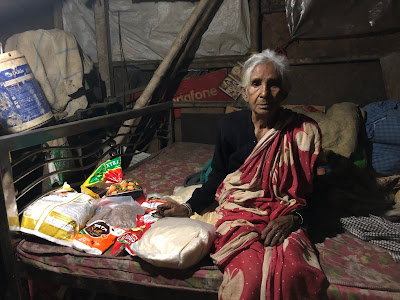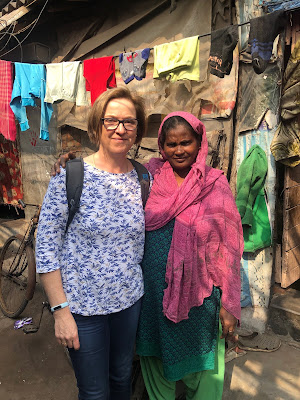News from Kolkata during the COVID19 Crisis

What’s happening in India Jane with Razia in January 2020 I was last in Kolkata in January. One woman who has become a friend over the years is Razia. She lives with her disabled husband and 3 children in a shelter beside the Topsia nullah (a stinking open sewer or canal). She is illiterate and terribly poor but determined to make a better life for herself and her family. Her daughter has just taken her class 10 exams and has great ambitions to continue her education. I always drop in to see Razia when I’m in Topsia and if don’t find her, she’ll come and find me. It’s an odd sort of friendship but one I value. She is the human face of Tiljala SHED’s work. So I was very shocked to be send some footage of a delegation from Topsia, who had come to visit Shafkat at home to explain how desperate the community is for food. There was Razia. I shouldn’t be surprised – she is a community leader in the Topsia canalside squatters and would absolutely stand up for her neighbours. ...





